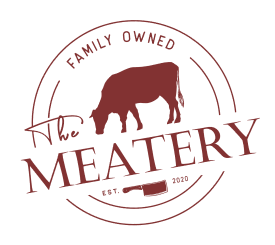History And Origin Of American Wagyu
The story of American Wagyu begins in 1976 when the first Japanese Wagyu cattle were imported to the United States. This marked a significant turning point in American beef production, as these prized Japanese cattle breeds—primarily Tajima-strain Kuroge Washu—were crossbred with traditional American cattle breeds.
The initial imports were limited, with only four Wagyu bulls entering the country. During the 1990s, additional imports from Japan helped establish a broader genetic base for American Wagyu. The primary goal was to combine the exceptional marbling characteristics of Japanese Wagyu with the larger frame and higher yield of American cattle breeds.
Early pioneers of American Wagyu faced numerous challenges, including strict strict Japanese export restrictions and the complex process of adapting these cattle to American farming practices. However, their persistence led to the development of what we now know as American Wagyu, a unique hybrid that offers a distinctive blend of Japanese and American cattle genetics.
The American Wagyu industry has grown significantly since those early days, with ranchers across the country now raising these premium cattle. Organizations like the American Wagyu Association, established in 1990, help maintain breed standards and provide certification programs that ensure the authenticity of American Wagyu beef.
What breed is American Wagyu?
American Wagyu is typically a crossbreed between Japanese Wagyu cattle and traditional American beef cattle breeds. The most common combination involves breeding Japanese Black Wagyu (Kuroge Washu) with Angus cattle, though other variations exist. This crossbreeding creates what's known as an F1 hybrid, representing the first generation of the cross.
The primary breeds used in American Wagyu production include:
- Japanese Black (Kuroge Washu): The primary Japanese Wagyu breed used
- Black Angus: The most common American breed for crossing
- Red Angus: Sometimes used for specific breeding programs
- Holstein: Occasionally used in certain crossing programs
The percentage of Wagyu genetics can vary significantly in American Wagyu cattle. Some producers maintain herds with higher percentages of Wagyu genetics (F2, F3, or higher generations), while others focus on F1 crosses. This variation in genetic composition contributes to differences in meat quality and characteristics across different producers.
Is American Wagyu better than Prime?
When comparing American Wagyu to USDA Prime beef, it's important to understand that they represent different quality standards. USDA Prime, while being the highest grade in the traditional US beef grading system, typically has less marbling than American Wagyu.
American Wagyu generally exceeds USDA Prime in several aspects:
- Higher marbling scores (often surpassing the Prime grade requirements)
- More complex flavor profile
- Greater tenderness
- Enhanced juiciness
However, "better" is somewhat subjective. While American Wagyu typically offers superior marbling and tenderness, some consumers prefer the familiar taste and texture of USDA Prime beef. The choice often depends on personal preference and intended use. American Wagyu's higher price point also factors into the value equation for many consumers.
Is American Wagyu graded?
American Wagyu beef follows a unique grading system that differs from both the traditional USDA grading system and the Japanese Wagyu grading system. The American Wagyu Association (AWA) has developed its own grading standards, though not all American Wagyu is graded under this system.
The grading considerations include:
- Marbling Score: Evaluated on a scale that extends beyond USDA Prime
- Meat Color: Assessment of the meat's visual appearance
- Firmness: Evaluation of meat texture
- Quality Grade: Overall quality assessment
Many American Wagyu producers also use the USDA grading system, with their products typically grading at Prime or above. Some producers have developed their own proprietary grading systems to differentiate their products in the market.
How close is American Wagyu to Japanese Wagyu?
While American Wagyu shares genetics with Japanese Wagyu, there are significant differences between the two. Japanese Wagyu represents a pure breed raised under strict regulations, while American Wagyu is typically a crossbreed raised under different conditions.
Key distinctions include:
- Genetic composition (pure vs. crossbred)
- Raising methods and regulations
- Feed programs
- Marbling patterns and intensity
- Price point and availability
American Wagyu typically offers a middle ground between traditional American beef and Japanese Wagyu, combining desirable characteristics from both parent breeds. While it may not match the extreme marbling of Japanese Wagyu, it provides an excellent premium beef experience at a more accessible price point.
Differences In Marbling And Fat Content
The marbling and fat content in American Wagyu presents a distinct profile that sets it apart from both conventional beef and Japanese Wagyu. The intramuscular fat distribution creates a unique pattern that influences both texture and flavor.
Notable characteristics include:
- More extensive marbling than USDA Prime
- Different fat composition compared to Japanese Wagyu
- Larger muscle structure with integrated fat deposits
- Higher ratio of monounsaturated to saturated fats
The marbling in American Wagyu tends to be more pronounced than in conventional beef but less extreme than Japanese Wagyu. This creates a balanced eating experience that many consumers find ideal, offering enhanced flavor and tenderness while maintaining a familiar beef texture.
Is Costco Wagyu ground beef real?
Costco's Wagyu ground beef is indeed genuine American Wagyu, though it's important to understand what this means in context. The product typically comes from American Wagyu crossbreed cattle, not pure Japanese Wagyu.
Key points about Costco's Wagyu ground beef:
- Contains genuine American Wagyu beef
- Typically comes from F1 crossbreed cattle
- Offers higher quality than standard ground beef
- Provides good value for American Wagyu products
While it may not match the quality of premium cuts from specialized Wagyu producers, Costco's Wagyu ground beef represents a legitimate entry point into the American Wagyu market, offering enhanced flavor and quality compared to conventional ground beef at a reasonable price point.









